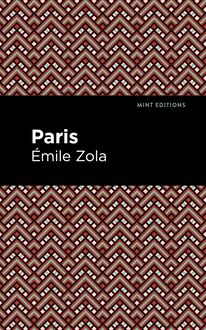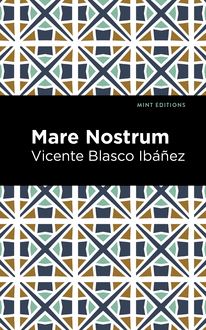-
 Univers
Univers
-
 Ebooks
Ebooks
-
 Livres audio
Livres audio
-
 Presse
Presse
-
 Podcasts
Podcasts
-
 BD
BD
-
 Documents
Documents
-
- Cours
- Révisions
- Ressources pédagogiques
- Sciences de l’éducation
- Manuels scolaires
- Langues
- Travaux de classe
- Annales de BEP
- Etudes supérieures
- Maternelle et primaire
- Fiches de lecture
- Orientation scolaire
- Méthodologie
- Corrigés de devoir
- Annales d’examens et concours
- Annales du bac
- Annales du brevet
- Rapports de stage
La lecture à portée de main
Vous pourrez modifier la taille du texte de cet ouvrage
Découvre YouScribe en t'inscrivant gratuitement
Je m'inscrisDécouvre YouScribe en t'inscrivant gratuitement
Je m'inscrisEn savoir plus
Vous pourrez modifier la taille du texte de cet ouvrage
En savoir plus

Description
Paris (1898) is a novel by French author Émile Zola. Paris is the final installment in Zola’s celebrated Three Cities Trilogy. Published toward the end of Zola’s career, the trilogy is an ambitious, sweeping study of one man’s struggle with faith in political, religious, and social life. Following his protagonist Abbé Pierre Froment, Zola provides a striking portrait of the soul of modern man in crisis with itself and with an ever-changing world. Paris finds Abbé Froment back in his home city, disheartened in his life and in his faith. Having failed in his quest to reform the Church, he turns his attention from institutional change to helping the poor and sick. As his reputation as an almsgiver grows, he draws the ire of his Church superiors, who are wary of his socialistic ideals. Regardless, Pierre dedicates himself to his subjects, taking in the poverty and destitution of a great city’s slums and forgetting his former ambitions. When a near-death experience involving an anarchist bombing brings him back in touch with his estranged brother Guillaume, Froment begins to wonder whether his fate must rely on an institution unwilling, and perhaps unable, to change. In the thrilling conclusion to his Three Cities Trilogy, Zola explores the meaning of faith in a faithless world through the eyes of one good man. With a beautifully designed cover and professionally typeset manuscript, this edition of Émile Zola’s Paris is a classic work of French literature reimagined for modern readers.
Sujets
Informations
| Publié par | Mint Editions |
| Date de parution | 11 mai 2021 |
| Nombre de lectures | 0 |
| EAN13 | 9781513294513 |
| Langue | English |
| Poids de l'ouvrage | 2 Mo |
Informations légales : prix de location à la page 0,0500€. Cette information est donnée uniquement à titre indicatif conformément à la législation en vigueur.
Extrait
Paris
Émile Zola
Paris was first published in 1898.
This edition published by Mint Editions 2021.
ISBN 9781513291666 | E-ISBN 9781513294513
Published by Mint Editions®
minteditionbooks.com
Publishing Director: Jennifer Newens
Design & Production: Rachel Lopez Metzger
Project Manager: Micaela Clark
Translated by: Ernest A. Vizetelly
Typesetting: Westchester Publishing Services
C ONTENTS B OOK I I. T HE P RIEST AND THE P OOR II. W EALTH AND W ORLDLINESS III. R ANTERS AND R ULERS IV. S OCIAL S IDELIGHTS V. F ROM R ELIGION TO A NARCHY B OOK II I. R EVOLUTIONISTS II. A H OME OF I NDUSTRY III. P ENURY AND T OIL IV. C ULTURE AND H OPE V. P ROBLEMS B OOK III I. T HE R IVALS II. S PIRIT AND F LESH III. P LOT AND C OUNTERPLOT IV. T HE M AN H UNT V. T HE G AME OF P OLITICS B OOK IV I. P IERRE AND M ARIE II. T OWARDS L IFE III. T HE D AWN OF L OVE IV. T RIAL AND S ENTENCE V. S ACRIFICE B OOK V I. T HE G UILLOTINE II. I N V ANITY F AIR III. T HE G OAL OF L ABOUR IV. T HE C RISIS V. L IFE ’ S W ORK AND P ROMISE
BOOK I
I
T HE P RIEST AND THE P OOR
That morning, one towards the end of January, Abbe Pierre Froment, who had a mass to say at the Sacred Heart at Montmartre, was on the height, in front of the basilica, already at eight o’clock. And before going in he gazed for a moment upon the immensity of Paris spread out below him.
After two months of bitter cold, ice and snow, the city was steeped in a mournful, quivering thaw. From the far-spreading, leaden-hued heavens a thick mist fell like a mourning shroud. All the eastern portion of the city, the abodes of misery and toil, seemed submerged beneath ruddy steam, amid which the panting of workshops and factories could be divined; while westwards, towards the districts of wealth and enjoyment, the fog broke and lightened, becoming but a fine and motionless veil of vapour. The curved line of the horizon could scarcely be divined, the expanse of houses, which nothing bounded, appeared like a chaos of stone, studded with stagnant pools, which filled the hollows with pale steam; whilst against them the summits of the edifices, the housetops of the loftier streets, showed black like soot. It was a Paris of mystery, shrouded by clouds, buried as it were beneath the ashes of some disaster, already half-sunken in the suffering and the shame of that which its immensity concealed.
Thin and sombre in his flimsy cassock, Pierre was looking on when Abbe Rose, who seemed to have sheltered himself behind a pillar of the porch on purpose to watch for him, came forward: “Ah! it’s you at last, my dear child,” said he, “I have something to ask you.”
He seemed embarrassed and anxious, and glanced round distrustfully to make sure that nobody was near. Then, as if the solitude thereabouts did not suffice to reassure him, he led Pierre some distance away, through the icy, biting wind, which he himself did not seem to feel. “This is the matter,” he resumed, “I have been told that a poor fellow, a former house-painter, an old man of seventy, who naturally can work no more, is dying of hunger in a hovel in the Rue des Saules. So, my dear child, I thought of you. I thought you would consent to take him these three francs from me, so that he may at least have some bread to eat for a few days.”
“But why don’t you take him your alms yourself?”
At this Abbe Rose again grew anxious, and cast vague, frightened glances about him. “Oh, no, oh, no!” he said, “I can no longer do that after all the worries that have befallen me. You know that I am watched, and should get another scolding if I were caught giving alms like this, scarcely knowing to whom I give them. It is true that I had to sell something to get these three francs. But, my dear child, render me this service, I pray you.”
Pierre, with heart oppressed, stood contemplating the old priest, whose locks were quite white, whose full lips spoke of infinite kindliness, and whose eyes shone clear and childlike in his round and smiling face. And he bitterly recalled the story of that lover of the poor, the semi-disgrace into which he had fallen through the sublime candour of his charitable goodness. His little ground-floor of the Rue de Charonne, which he had turned into a refuge where he offered shelter to all the wretchedness of the streets, had ended by giving cause for scandal. His naivete and innocence had been abused; and abominable things had gone on under his roof without his knowledge. Vice had turned the asylum into a meeting-place; and at last, one night, the police had descended upon it to arrest a young girl accused of infanticide. Greatly concerned by this scandal, the diocesan authorities had forced Abbe Rose to close his shelter, and had removed him from the church of Ste. Marguerite to that of St. Pierre of Montmartre, where he now again acted as curate. Truth to tell, it was not a disgrace but a removal to another spot. However, he had been scolded and was watched, as he said; and he was much ashamed of it, and very unhappy at being only able to give alms by stealth, much like some harebrained prodigal who blushes for his faults.
Pierre took the three francs. “I promise to execute your commission, my friend, oh! with all my heart,” he said.
“You will go after your mass, won’t you? His name is Laveuve, he lives in the Rue des Saules in a house with a courtyard, just before reaching the Rue Marcadet. You are sure to find it. And if you want to be very kind you will tell me of your visit this evening at five o’clock, at the Madeleine, where I am going to hear Monseigneur Martha’s address. He has been so good to me! Won’t you also come to hear him?”
Pierre made an evasive gesture. Monseigneur Martha, Bishop of Persepolis and all powerful at the archiepiscopal palace, since, like the genial propagandist he was, he had been devoting himself to increasing the subscriptions for the basilica of the Sacred Heart, had indeed supported Abbe Rose; in fact, it was by his influence that the abbe had been kept in Paris, and placed once more at St. Pierre de Montmartre.
“I don’t know if I shall be able to hear the address,” said Pierre, “but in any case I will go there to meet you.”
The north wind was blowing, and the gloomy cold penetrated both of them on that deserted summit amidst the fog which changed the vast city into a misty ocean. However, some footsteps were heard, and Abbe Rose, again mistrustful, saw a man go by, a tall and sturdy man, who wore clogs and was bareheaded, showing his thick and closely-cut white hair. “Is not that your brother?” asked the old priest.
Pierre had not stirred. “Yes, it is my brother Guillaume,” he quietly responded. “I have found him again since I have been coming occasionally to the Sacred Heart. He owns a house close by, where he has been living for more than twenty years, I think. When we meet we shake hands, but I have never even been to his house. Oh! all is quite dead between us, we have nothing more in common, we are parted by worlds.”
Abbe Rose’s tender smile again appeared, and he waved his hand as if to say that one must never despair of love. Guillaume Froment, a savant of lofty intelligence, a chemist who lived apart from others, like one who rebelled against the social system, was now a parishioner of the abbe’s, and when the latter passed the house where Guillaume lived with his three sons—a house all alive with work—he must often have dreamt of leading him back to God.
“But, my dear child,” he resumed, “I am keeping you here in this dark cold, and you are not warm. Go and say your mass. Till this evening, at the Madeleine.” Then, in entreating fashion, after again making sure that none could hear them, he added, still with the air of a child at fault: “And not a word to anybody about my little commission—it would again be said that I don’t know how to conduct myself.”
Pierre watched the old priest as he went off towards the Rue Cartot, where he lived on a damp ground-floor, enlivened by a strip of garden. The veil of disaster, which was submerging Paris, now seemed to grow thicker under the gusts of the icy north wind. And at last Pierre entered the basilica, his heart upset, overflowing with the bitterness stirred up by the recollection of Abbe Rose’s story—that bankruptcy of charity, the frightful irony of a holy man punished for bestowing alms, and hiding himself that he might still continue to bestow them. Nothing could calm the smart of the wound reopened in Pierre’s heart—neither the warm peacefulness into which he entered, nor the silent solemnity of the broad, deep fabric, whose new stonework was quite bare, without a single painting or any kind of decoration; the nave being still half-barred by the scaffoldings which blocked up the unfinished dome. At that early hour the masses of entreaty had already been said at several altars, under the grey light falling from the high and narrow windows, and the tapers of entreaty were burning in the depths of the apse. So Pierre made haste to go to the sacristy, there to assume his vestments in order that he might say his mass in the chapel of St. Vincent de Paul.
But the floodgates of memory had been opened, and he had no thought but for his distress whilst, in mechanical fashion, he performed the rites and made the customary gestures. Since his return from Rome three years previously, he had been living in the very worst anguish that can fall on man. At the outset, in order to recover his lost faith, he had essayed a first experiment: he had gone to Lourdes, there to seek the innocent belief of the child who kneels and prays, the primitive faith of young nations bending beneath the terror born of ignorance; but he had rebelled yet more than ever in presence of what he had witnessed at Lourdes: that glorification of the absurd, that collapse of common sense; and was convinced that salvation, the peace of men and nations nowadays, could not lie in that puerile relinquishment of reason. And afte
-
 Univers
Univers
-
 Ebooks
Ebooks
-
 Livres audio
Livres audio
-
 Presse
Presse
-
 Podcasts
Podcasts
-
 BD
BD
-
 Documents
Documents
-
Jeunesse
-
Littérature
-
Ressources professionnelles
-
Santé et bien-être
-
Savoirs
-
Education
-
Loisirs et hobbies
-
Art, musique et cinéma
-
Actualité et débat de société
-
Jeunesse
-
Littérature
-
Ressources professionnelles
-
Santé et bien-être
-
Savoirs
-
Education
-
Loisirs et hobbies
-
Art, musique et cinéma
-
Actualité et débat de société
-
Actualités
-
Lifestyle
-
Presse jeunesse
-
Presse professionnelle
-
Pratique
-
Presse sportive
-
Presse internationale
-
Culture & Médias
-
Action et Aventures
-
Science-fiction et Fantasy
-
Société
-
Jeunesse
-
Littérature
-
Ressources professionnelles
-
Santé et bien-être
-
Savoirs
-
Education
-
Loisirs et hobbies
-
Art, musique et cinéma
-
Actualité et débat de société
- Cours
- Révisions
- Ressources pédagogiques
- Sciences de l’éducation
- Manuels scolaires
- Langues
- Travaux de classe
- Annales de BEP
- Etudes supérieures
- Maternelle et primaire
- Fiches de lecture
- Orientation scolaire
- Méthodologie
- Corrigés de devoir
- Annales d’examens et concours
- Annales du bac
- Annales du brevet
- Rapports de stage



















